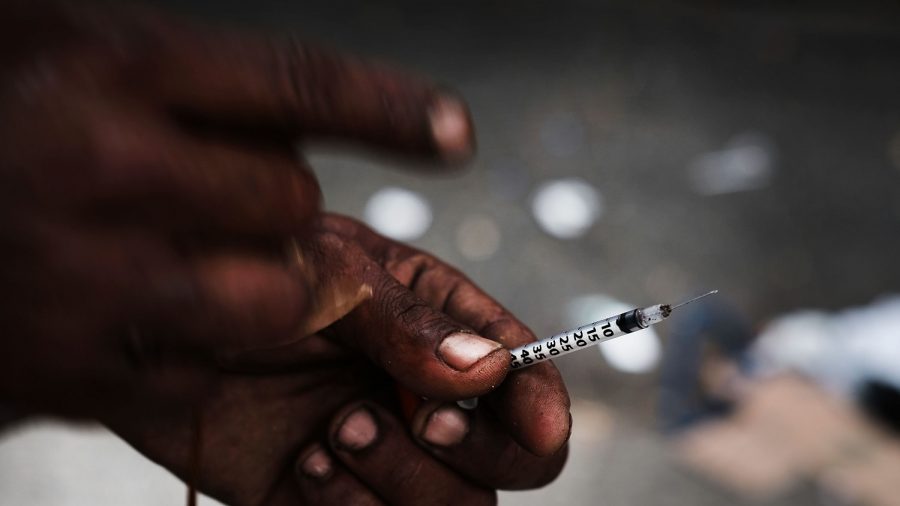The Justice Department is considering implementing supervised sites in underserved communities where they will provide pipes for users to smoke crack cocaine, crystal methamphetamine, and other narcotics, in an effort to reduce the risks associated with substance abuse and prevent fatal overdoses.
Known as the “Harm Reduction Program Grant” the $30 million grant program would provide funding to community-based overdose prevention programs, syringe services programs, and other “harm reduction services”.
Funding such overdose and prevention activities will help stem the spread of infectious diseases associated with substance abuse and support the distribution of FDA-approved overdose reversal medication to individuals at risk of overdose, the program stated.
The program will also provide those at risk of developing, or who already have substance abuse issues, with counseling and health education, and “encourage such individuals to take steps to reduce the negative personal and public health impacts of substance use or misuse.”
The funding would also be used to purchase equipment and supplies to “enhance harm reduction efforts,” which includes a harm reduction vending machine—an automated dispensing system stocked with supplies to reduce the risks associated with drug use—and “safe smoking kits/supplies.”
A Department of Health and Human Services (HHS) spokesman told the Washington Free Beacon that these kits will provide pipes for users to smoke crack cocaine, crystal methamphetamine, and “any illicit substance.”
The kits aim to reduce the risk of infection when smoking substances with glass pipes, which can lead to infections through cuts and sores, HHS said.
Applications for the grant closed on Monday and will begin in May with a focus on “underserved communities,” including African Americans and “LGBTQ+ persons,” as established under President Joe Biden’s executive order on “advancing racial equity” HHS said.
The program is being authorized under the Public Health Service Act and Biden’s American Rescue Plan Act of 2021.
A spokesperson for the agency confirmed to the Associated Press. that they were considering implementing the supervised consumption sites and had been holding discussions with regulators.
“Although we cannot comment on pending litigation, the Department is evaluating supervised consumption sites, including discussions with state and local regulators about appropriate guardrails for such sites, as part of an overall approach to harm reduction and public safety,” the agency said in a statement Friday to the AP.
The Epoch Times has contacted a Department of Justice (DOJ) spokesperson for comment.
Critics of the program argue that government efforts should be more focused on stopping illegal drug use as opposed to making it safer.
“Is this a cruel joke? Drug overdose deaths are at their highest recorded levels. The Biden administration should focus on stopping traffickers instead of creating more demand for their product,” Sen. Tom Cotton, R-Ark remarked via Twitter.

The program comes as Biden’s administration has been working to tackle the nationwide opioid crisis and substance use disorders via a “comprehensive, public health approach.”
In March, Biden signed into law the American Rescue Plan, which appropriated nearly $4 billion to enable the Substance Abuse and Mental Health Services Administration and the Health Resources and Services Administration to increase access to behavioral health services to tackle the crisis.
Biden has also advocated for individuals with substance abuse issues to be offered treatment as opposed to being incarcerated for drug use.
According to the Centers for Disease Control and Prevention (CDC), more than 100,000 Americans died of drug overdoses from May 2020 to April 2021.
Biden’s position on so-called safety sites for drug users represents a drastic change from that of the Trump administration, who fought vigorously against opening such sites across Philadelphia.
A federal appeals court in Philadelphia eventually ruled that it was a federal crime to open such supervised injection sites or “consumption rooms” across the state and that “although the opioid crisis may call for innovative solutions, local innovations may not break federal law.”
From The Epoch Times

